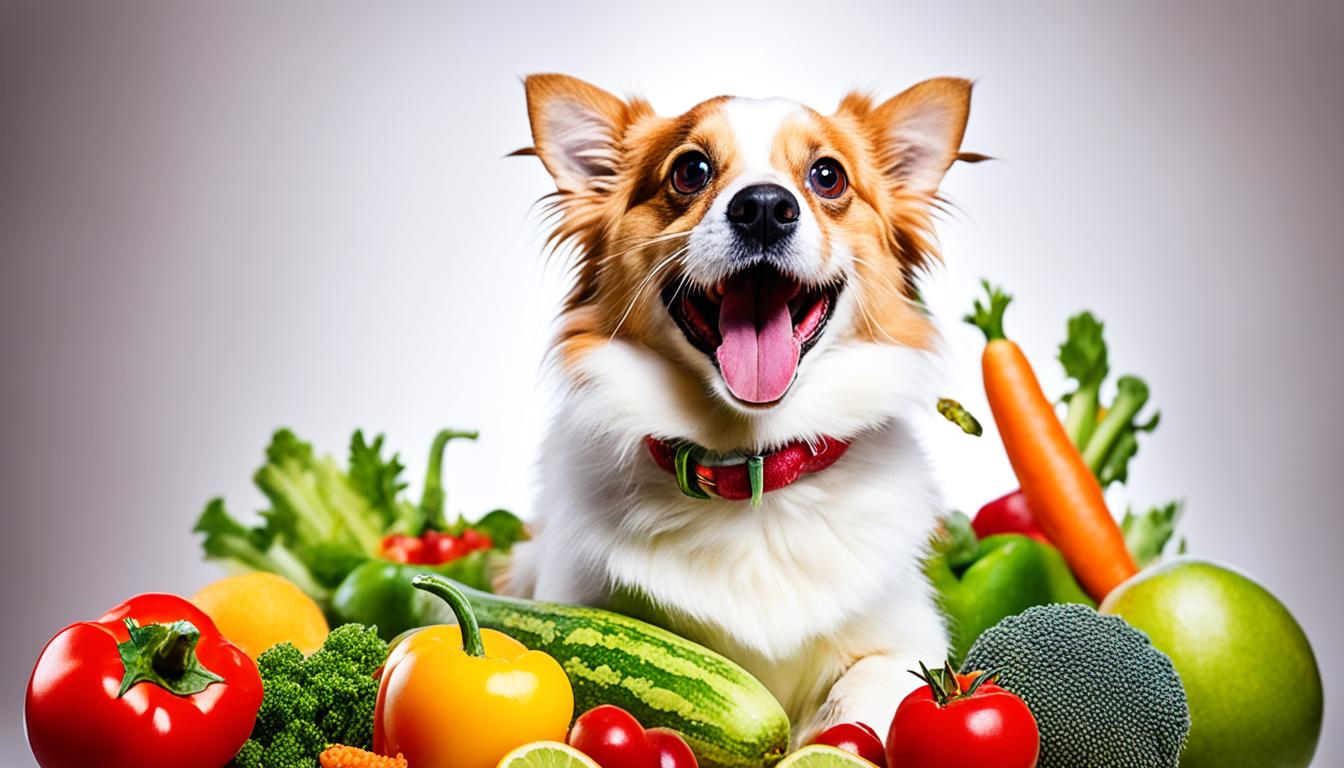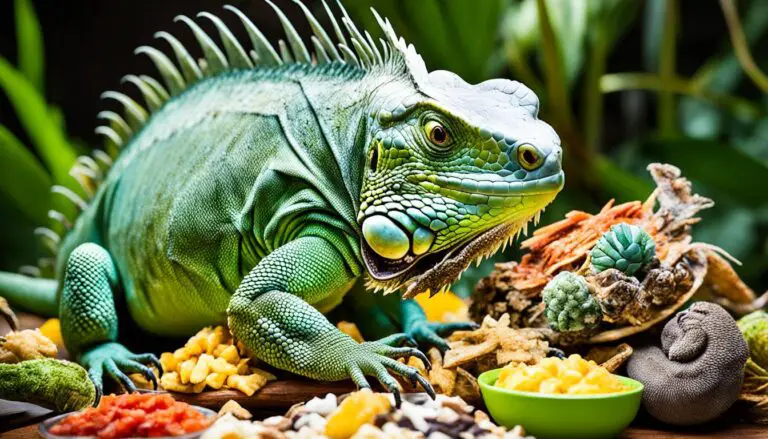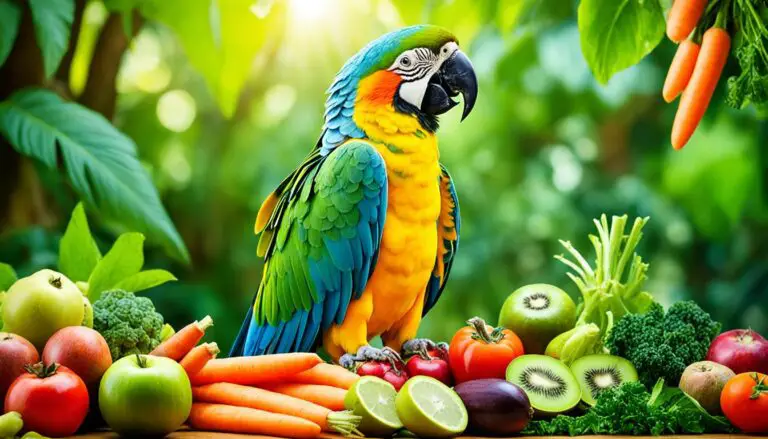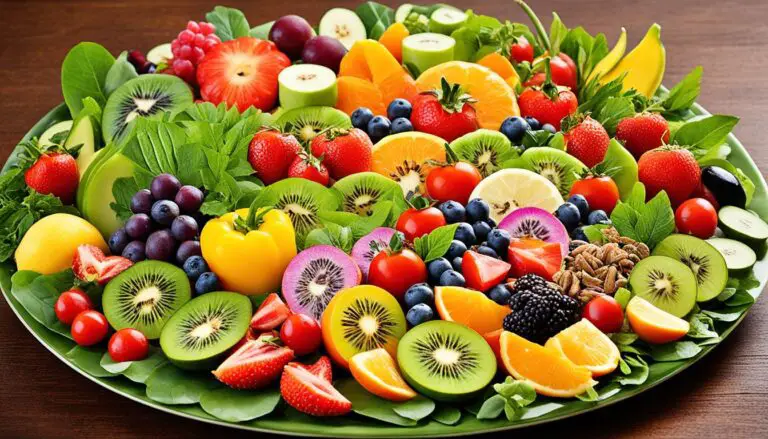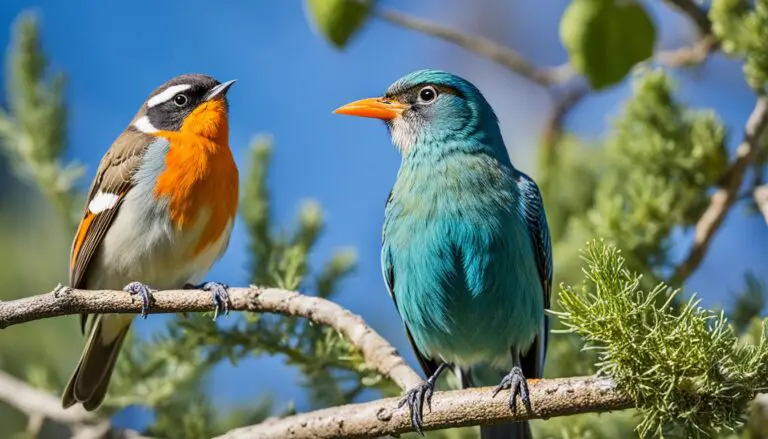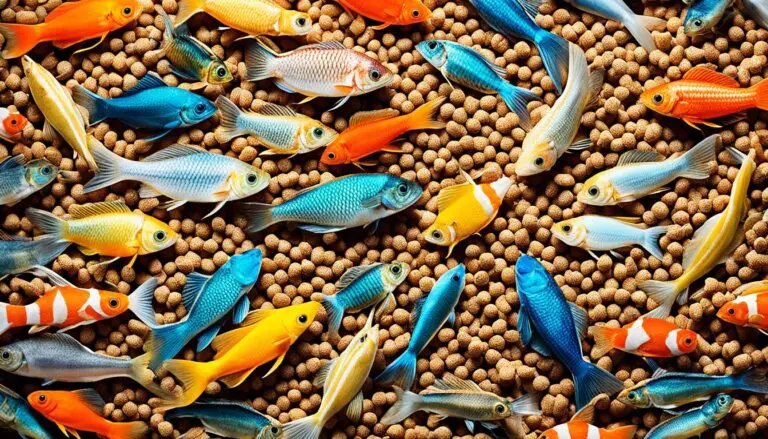Optimal Diet & Nutrition for Exotic Pet Health
Did you know many exotic pets are not getting the right food and enough water? Owners unknowingly give their exotic animals food that doesn’t fully meet their needs. This leads to health issues.
It’s key to know what your exotic pet needs to eat. Then, start with a diet that’s balanced and varied. This is very important for their feather, fur, or skin health.
We will talk about why diet and nutrition are critical. We will look at what herbivorous, omnivorous, and carnivorous exotic pets should eat. We’ll also cover how to avoid nutritional problems and why a balanced diet is so important.
By learning about nutrition, your exotic pet can live a long, healthy life. Now, let’s get started!
Key Takeaways:
- Malnutrition and dehydration are common issues in exotic pets.
- Understanding the dietary requirements of your exotic pet is crucial for their well-being.
- Providing a balanced and varied diet is essential for vibrant feather, fur, or skin health in exotic pets.
- Nutritional disorders can arise from deficient or imbalanced diets.
- Regular vet check-ups and monitoring for nutritional deficiencies are critical for exotic pet health.
Importance of Balanced Diets for Exotic Pets
Exotic pets need a well-balanced diet for good health. They have special dietary needs based on their species and where they come from. A good diet helps them get all the nutrients they need, staying healthy and living longer.
It’s vital to give exotic pets a mix of healthy foods. There’s no single “best” food for them, but there are guidelines to follow. Their diet should match what they would eat in the wild to stay healthy.
Understanding what your exotic pet should eat is crucial. Look into what they eat in the wild, and talk to a vet who knows about exotic pets. Avoid feeding them only pre-packaged foods since these may not be very nutritious.
Include fresh fruits, veggies, and quality proteins in your exotic pet’s diet. This mix gives them all the necessary vitamins, minerals, and prevents boredom. It also helps satisfy their natural hunting or foraging instincts.
When planning your exotic pet’s diet, remember these tips for good nutrition:
- Give them a mix of proteins, carbs, fats, vitamins, and minerals.
- Vary the foods’ textures and consistencies for their teeth and natural behaviors.
- Use vitamin and mineral supplements if needed.
- Watch their weight and adjust serving sizes to keep them healthy.
- Talk to a vet to make sure their diet is right for them.
Providing a balanced, diverse diet is key to your exotic pet’s health. By keeping to these nutritional tips, you can make sure they have a joyful, healthy life.

Diet Recommendations for Herbivorous Exotic Pets
Herbivorous exotic pets like rabbits, guinea pigs, and turtles need a special diet for good health. A mix of foods that offer needed nutrients, vitamins, and minerals is best. This keeps their skin, feathers, and fur in top shape.
These pets do well on a diet rich in plant-based foods, especially high in fiber. Veggies, with an emphasis on vitamins A and D3, keep their skin and coat healthy. Ensuring the right balance of calcium to phosphorus also supports strong bones.
A big part of their diet should be from plant sources. This includes hay, fresh veggies, and various greens.
“Offering a variety of foods enables herbivorous exotic pets to obtain a wide range of nutrients and promotes overall diet balance,” says Dr. Emily Carter, a veterinarian at Exotic Care Pet Hospital.
While it’s okay to give them some grocery store greens, use them carefully. Foods like kale, spinach, and lettuce can go with items high in fiber, like timothy hay. This makes a well-rounded meal.
Nutrient Supplementation
Sometimes, pets may need extra nutrients on top of their plant-based meals. This is common if their natural food options are limited, or they have special needs. Adding calcium, vitamin D3, and other minerals can help cover these gaps. But always check with a vet first.
A vet with exotic animal experience can help figure out the right supplements. They’ll pick the best amounts and how often to give them.
Ensuring a Healthy Balance
A good diet mix is key for these pets. Include hay, fresh veggies, and greens in their meals for a variety of nutrients. This also prevents them from getting bored and picky with food.
Dr. Carter notes, “By offering a well-rounded diet that meets their nutritional needs, owners can help their herbivorous pets maintain optimal feather health, fur health, and skin care while ensuring their overall well-being.”

In the end, the right diet is essential for exotic herbivores’ feather, fur, and skin health. A diet filled with plant-based items and the right balance of nutrients does wonders. With the right food and some selected supplements, they’ll have bright feathers, healthy fur, and beautiful skin alike.
Feeding Omnivorous Exotic Pets
Omnivorous exotic pets, like sugar gliders and hedgehogs, need a mix of plant and animal foods. This ensures they’re healthy and full of energy. For a good diet, provide both fruits and insects.
These pets should eat mostly plants and a bit of animal foods, around 75% to 90% and 10% to 25%, respectively. This mix keeps them well-nourished with essential nutrients.
Extra animal food might help when they’re young pets. But, as they grow up, they tend to eat more plants. You should keep an eye on what they eat to avoid any shortage of nutrients.
If your exotic pet eats bugs, make sure they are getting the right nutrition. This step is vital to keep your pet’s diet balanced and prevent health issues.
Grooming Requirements for Exotic Pets
Exotic pets need good grooming to stay healthy. It’s vital to prevent skin problems, help their fur or feathers stay in good shape, and make them happy.
How you groom your exotic pet depends on what species they are. But for many, grooming includes caring for their feathers and fur, trimming their nails, and cleaning their ears.
- Feather care: This includes checking and cleaning feathers, as well as trimming any that are too long or damaged. Your pet may need baths or misting, too.
- Fur health: Brush or comb fur often to avoid tangles. Inspect for pests and keep their home clean.
- Nail trimming: Make sure their nails aren’t too long. This prevents pain and mobility issues.
- Ear cleaning: It’s important to clean ears gently. This stops dirt from causing problems.
What works best for your pet will depend on both their species and their individual needs. A vet with experience in exotic animals can tell you what your pet requires. They will also recommend the right grooming items.
By feeding your pet well and looking after their grooming, you give them a great life. They’ll be happy, healthy, and have a shiny coat or feathers.

Catering to Carnivorous Exotic Pets
Carnivorous exotic pets, like snakes and lizards, need a simple diet. They eat both invertebrates and vertebrates. It’s crucial that their food is full of nutrients and vitamins. This helps keep their Exotic pet skin health, feather health in exotic pets, and fur health in exotic pets shining.
It’s key to give them different types of food. This variety makes sure they get all the nutrients they need. For fish-eaters, you might need to add thiamine to frozen fish to keep them healthy.
Feeding them like they would eat in the wild is best. A mix of food is important for their health. This is true for exotic pet skin health, feather health in exotic pets, and fur health in exotic pets.

By focusing on what these pets require to eat, you’ll see them flourish. Their skin, feathers, and fur will look amazing.
Nutritional Disorders in Exotic Pets
Nutritional problems in exotic pets often come from not getting the right diet. These issues can mess up their skin, feathers, or fur. We’ll look at some common problems and how they affect exotic pets:
Hypovitaminosis A
Hypovitaminosis A happens when exotic pets don’t get enough vitamin A. Signs of this issue include eye and skin problems, along with vision loss. Pets might develop dry skin or lose feathers or fur if they have this.
Metabolic Bone Disease (MBD)
MBD is common, especially without the right amount of calcium in their food. Pets might tremble, have weak bones or shells, and even break bones. This can cause bad skeletal growth and trouble moving right.
Gout
Gout affects some exotic pets with too much protein in their diet. It leads to joint pain and swelling from too much uric acid. This makes it hard for pets to get around.
To fight these diseases, owners should take good care of their pets and change their diet. Making sure they eat right is key to their health. Vets should check them often to stop these problems early. This keeps their skin, feathers, and fur in good shape.
Proper nutrition is key to keeping exotic pets healthy. Each type of pet needs a special diet. By knowing what they need and watching out for problems, we help them live well with us.
Importance of Balanced Diet and Nutrient Supplementation
It’s key to feed exotic pets the right food and give them needed nutrients. A good diet, full of important vitamins and minerals, keeps pets healthy. It makes sure they live their best life.
What exotic pets eat affects how they feel and how long they live. A diet perfect for them makes a big difference. It needs to fit their special nutrition needs and health requirements.
Exotic pets should eat foods that are like what they’d find in the wild. This means a variety of high-quality foods. Owners must pick foods that meet their pet’s special diet and nutrients.
Each exotic pet has its own food needs. A vet who knows about exotic pets can help. They can give advice on the best diet and what nutrients to add.
Keeping exotic pets hydrated is also crucial. They need fresh water all the time. Owners should watch how much water their pets drink to make sure they stay well.
Owning an exotic pet means making sure they eat right and get the right nutrients. Doing this stops many health problems. It also makes their lives longer and happier.
It’s crucial to take exotic pets for check-ups with the vet. Vets check their health and diet. They can find out if pets are missing any needed nutrients. Then they’ll suggest how to fix their diet or add supplements.
If exotic pet owners focus on good food and nutrients, their pets will do great. And they’ll get to enjoy their pets’ company for a long time.
Proper Nutritional Management for Exotic Pets
Good food is key for a healthy exotic pet. Owners must know their pet’s special diet needs. They should keep their pets well-fed and hydrated. Regular vet check-ups and a balanced diet are crucial.
Giving the right amount of food and water is crucial. Water keeps pets healthy and their body working right. Make sure they always have clean water. Knowing what each pet needs to eat stops health problems.
Seeing the vet is very important for exotic pets’ diets. A vet can check a pet’s health and diet. They will suggest the best food or vitamins to keep your pet healthy. Regular visits make sure your pet is eating right.
Looking at a pet’s natural diet is a good start for feeding them. Exotic pets need special foods based on their wild homes. A mix of these types of food helps them stay healthy.
Knowing what food is right is key to good health. The right food gives pets what they need to stay healthy. Mix store foods with fresh foods to give pets the best diet.
Benefits of Proper Nutritional Management for Exotic Pets:
- Enhanced overall health and vitality
- Improved immune function
- Promotion of vibrant skin, fur, or feather health
- Reduced risk of obesity and associated health issues
- Prevention of nutritional deficiencies and related diseases
Taking care of your pet’s food leads to a happy life. With a vet’s help and the right food, exotic pets stay healthy. They can live their best life.
| Benefit | Description |
|---|---|
| Enhanced overall health and vitality | The right food helps the pet’s whole body work better. This makes them happy and full of life. |
| Improved immune function | Good food gives pets the power to fight sickness. It keeps them healthy and strong. |
| Promotion of vibrant skin, fur, or feather health | The best food makes their skin, fur, or feathers look great. It makes pets stand out. |
| Reduced risk of obesity and associated health issues | A balanced diet keeps pets from getting too fat. This stops many health problems. |
| Prevention of nutritional deficiencies and related diseases | The right diet helps pets avoid health issues. It keeps them in top shape. |
Conclusion
It’s crucial to give exotic pets the right diet for their health. For bright feathers, shiny fur, or smooth skin, a varied diet is key. This should match their natural diet, nutrient needs, and food choices.
Regular vet check-ups and watching for low nutrients are very important. This helps catch problems early and keeps exotic pets healthy for a long time. By being active in their care and giving them the right foods, pets can be happy and live longer.
Taking care of exotic pets is more than love. It’s making sure they eat well. Focus on what’s best for them by feeding a diverse diet. Getting help from vets ensures your pets’ feathers, fur, or skin stay in top shape.
FAQ
What is the importance of balanced diets for exotic pets?
What should I feed my herbivorous exotic pet?
What should I feed my omnivorous exotic pet?
What should I feed my carnivorous exotic pet?
What are the common nutritional disorders in exotic pets?
Why is a balanced diet and nutrient supplementation important?
How should I properly manage the nutrition of my exotic pet?
What is the significance of diet and nutrition for exotic pet health?
Source Links
- https://www.isvma.org/wp-content/uploads/2022/10/BonAppetitNutritionalConsiderationsforExoticPets.pdf
- https://pubmed.ncbi.nlm.nih.gov/7848183/
- https://exoticnutrition.com/blogs/blog/the-perfect-diet-for-exotic-pets
Peter Stones is the founder of Exotic Pets Place, the leading online resource for exotic pet care information.
With over 10 years of hands-on exotic pet ownership experience, he is deeply passionate about sharing his expertise to help others properly care for their unusual pets.
When he's not writing extensively researched articles or connecting with fellow exotic pet enthusiasts worldwide, you can find Peter at home tending to his own beloved menagerie of exotic animals.

